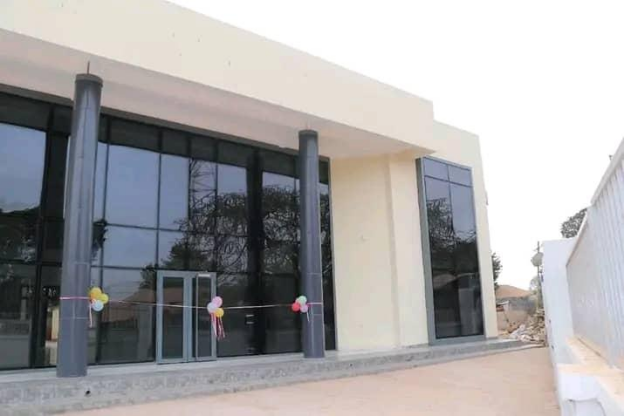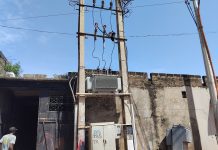By Makutu Manneh
Sulayman Barry, the Principal Internal Auditor of Brikama Area Council (BAC) has Thursday, 21st March 2024 told the Local Government Commission of Inquiry that the Brikama Area Council used to spend over One Million Dalasi each month on fuel purchase. This accumulates to over Twelve Million Dalasi (D12,000) annually.
The witness, who is the head of the internal audit unit of the Brikama Area Council, decried that the Management of the Council does not take audit queries seriously to address some of the issues they raised in their reports. He said this is why there is always reoccurrence of the same problems in the Council such as revenue suppression by revenue collectors. He added that the Management of the Council does little to address the audit queries.
“It is deliberate. They [the Management] do not respond to audit queries,” the witness said.
“What the Council spends on fuel is exorbitant. The amounts of money used to supply the Council fuel was exorbitant. These purchases are unjustifiable,” the witness said.
He said the Council has about twelve (12) vehicles whereas some of the trucks were not working.
“Most of the time we overspend,” the witness said.
“Is there a possibility of spending over 12 Million [Dalasi] in a year on fuel,” Chairperson Jainaba Bah asked the witness.
“Yes,” the Internal Auditor answered.
The Commission is conducting a full and impartial investigation into the local government councils to enhance transparency and accountable. It is doing so by reviewing the administrative and financial conducts of the Councils between 2018 and 2023.
Barry provided the Commission with the first and second quarter reports of the BAC conducted by the Internal Audit Unit of the Council. He also provided the valuation rolls of 2003 and the supplementary valuation roll of 2005. He testified that both valuation rolls are being used, adding that the second and fourth quarter internal audit reports of the Council were embedded in the System Audit Report. The four (4) documents were tendered and admitted in evidence.
Lead Counsel Patrick Gomez began his questioning using the First Quarter Audit Report by the BAC Internal Audit Unit. The report was signed by the witness.
The report on page 8 listed some revenue collectors who collected money and failed to deposit the amounts in the BAC bank accounts. The witness said there were so many incidents of revenue suppression. He added that he informed and served the Management of the Brikama Area Council the audit findings and the recommendations for steps to be taken to address the audit queries. The Management comprised former Chairman Sheriffo Sonko, former Chief Executive Officer (CEO) Modou Jonga and former Director of Finance Alagie Jagne. The witness said the affected revenue collectors were informed about the audit findings in relation to their conduct of suppressing council’s revenue.
One of the collectors was Buba Jabang, who collected monthly rental fees from the canteens in the market. In 2022, Buba collected over Four Hundred Thousand Dalasi, but made a total deposit of Two Hundred and Forty-Four Thousand Dalasi (D244,000). Another collector Bakary Drammeh withheld the sum of Thirty-Seven Thousand Dalasi. Sulayman Tamba did not deposit over Seven Thousand Dalasi.
When asked whether the revenues were repaid, the witness said he could not tell because there is no evidence of the repayments made.
The audit report also indicated that there were incomplete payment vouchers. The witness said this observable fact is chronic in the Brikama Area Councl whereas the Council would make payments without raising or preparing the vouchers. He told the Commission that some payments were made and the payment vouchers were numbered randomly. He explained that payment vouchers should number in sequence but for the BAC finance unit, they used to give random numbers to the vouchers. He testified that in most instances, the Council made payments and then started to raise vouchers after the transaction.
“The proper procedure is that the Council should prepare the payment vouchers and sign them before making the payments. The vouchers should pass through the Internal Audit Unit for pre-auditing to ensure that due process was followed. For the Brikama Area Council, they used to make payments this month and then raise the vouchers next month to cover for the expenses,” the witness said.
He testified that the BAC does not follow due process prescribed by law and this is why there is high tendency of making payments for transactions that are not genuine. He said every payment should be supported by evidence and must follow the laid down procedures. He added that if the procedure is flouted, then the payment might not be genuine and would be susceptible to fraud.
Another weird revelation in the audit report for the first quarter of 2022 was that there were duplicated or double payments made for single transactions. The witness said those payments were also without payment receipts. He gave a list of some of those transactions and informed the Commission that it could be more than that. The Council paid Eighty-Two Thousand, One Hundred and Sixty-Seven Dalasi, Fifty-Two Butut (D82,167.52) on the 28th of March 2022 and two days later, precisely on the 30th March 2022, the Council paid Sixty-Five Thousand, Seven Hundred and Thirty-Four Dalasi (D65,734) for the same transaction. He pointed out that the invoice of the first transaction was photocopied and used to make payment for the second transaction.
“Who approved the second payment?” Lead Counsel Patrick Gomez asked.
“The Director of Finance should be in position to answer this,” the witness answered.
The witness also cited some transactions that were done by the Council and payments were made by the Council that flouted procurement rules. There were no purchase orders, no approval of the CEO and the Director of Finance, no vouchers and they did not pass through the Internal Audit for pre-auditing before making the payments. One of the transactions was a Ninety-Two Thousand, Nine Hundred and Fifteen Dalasi (D92,915) payment made to GNPC. In that transaction, the CEO did not approve the invoice, purchase order and it was not signed by the Director of Finance and many other irregularities.
“How did this happen?” Counsel Gomez asked.
“I think the Director of Finance and the CEO are in better position to explain,” the witness said.
In another transaction, the BAC purchased office furniture in the sum of Seventy-Five Thousand Dalasi (D75,000) on the 14th of April 2022. The witness said that transaction did not follow due process, adding that the only information in the file regarding the purchase of the furniture was an incomplete voucher.
“Failure to adhere to the rules is a very serious violation. It increases the risk of inflating the price [of goods]. Also, if you buy from one supplier you might not get the best market price. Also, buying from one supplier might mean the person has a favourite supplier in order to get kickbacks,” the witness said.
The Council paid Four Hundred and Ninety-Nine Thousand, Five Hundred Dalasi (D499,500) for disaster relief in 2022. He explained that there was no quotation, no documents and the management of the Council has still not responded to the audit finding. He mentioned some of the transactions in which payments were made without supporting documents.
In 2023, the audit report made similar findings like 2022. The revenue collectors in 2023 suppressed the total sum of Eight Hundred and Sixty-Four Thousand, Five Hundred Dalasi (D864,500). The auditors recommended for the Management to take steps to recover this sum, but the witness said there is still no evidence of the recovery of the said sum.
“All of them were informed about the revenue suppression and they know about it,” the witness said.
In 2023, the Council also made double or duplicate payments for the same transactions like they did in 2022. Barry said those payments were mainly in relation to fuel purchase. One employee of the Finance Unit was paid over Two Thousand Dalasi twice for fuel on the same day when he does not have a vehicle. The Director of Finance and the second Finance Manager of the Council as well as other staff of the Finance Unit of the Council all received double payments for the same day for fuel supply for the same transaction. The witness gave a list of those who received double allocation of fuel on the same day and for the same transaction.
“These vehicles received double payments for the same supply. This means they were supplied twice on the same day,” the witness said.
The Commission noted from the audit report that there was a day when Ninety-Nine Thousand Dalasi (D99,000) was spent on fuel in one day.
The witness was also examined on fuel allocations to non-council vehicles.
“It is something that is common. The fuel supply is at the discretion of the CEO,” he said.
He informed the Commission that at the Brikama Area Council, the former CEO used to have veto to decide on issues and fuel supply was under him as he decides who gets fuel. He said the CEO used to veto decisions in the Council’s general meetings.
“The CEO is extremely powerful,” the witness said.
He explained that the Council has a “bucket line” for fuel, but they do not cater for the non-council vehicles. He said the BAC supplies fuel twice a week – on Mondays and Thursdays.
The Council also expended Eleven Thousand, Three Hundred and Fifty (D11,350) as medical expenses without any medical support scheme. The beneficiaries included the CEO, Finance Director and other revenue collectors.
The Council also made another payment of One Million and Fifty-Eight Thousand Dalasi without having payment receipts.
“This always happens in the Brikama Area Council,” the witness said.
The witness was examined on the 2022 System Audit, which his office conducted on the Brikama Area Council. The findings were similar to the previous audit findings mentioned.
The peculiar finding in the System Audit was the payment of salary to staff, who had either died or left the Council, and were receiving salary. He mentioned about ten (10) names. He said the Management did not respond to the audit query.
Another finding was the Council made double payments to some of the staff as they received both transport allowance and fuel allocation. The witness said a staff is entitled to only one allocation, either the fuel allocation or the transport allowance.
“You cannot have both at the same time,” the witness said.
The audit report indicated that Eight Hundred and Eighty-Three Thousand, Nine Hundred and Fifty Dalasi (D883,950) was the revenue suppressed by revenue collectors. The Commission noted from the audit report that an amount of Seven Million Dalasi (D7,000,000) was paid without payment vouchers being signed by the CEO and the Finance Director. This means those payments were not approved and they did not pass through the Internal Audit Unit for pre-auditing and approval.
The Commission further noted that Sixty-Thousand, One Hundred Dalasi (D60,100) was paid without receipts. The witness said in the absence of the receipts, those payments cannot be termed as genuine. The witness said about 90% of the transactions of the Councils did not follow due process.
On the accounting system in place in the BAC, the witness said the system was tailor-made to suit the desire of the Finance Director. He explained that the Internal Audit Unit has limited access to the system. The Matrix System, as he called it, contains the payroll, the main cash book of the council, expenditures and other relevant information including the balance sheet.
The witness testified that in many entities the user rights are controlled by the IT Unit, but for the Brikama Area Council, the Director of Finance controls and limits people’s access to the data in the Matrix System.
“Most of us do not have full access to the system,” the witness said.
He said this was why they were not able to have the time to scrunitise salary payments and it was the reason why they were not able to know whether there were ghost workers in the Council. He testified that the Director of Finance used to pay himself the highest allowances and he pays other people allowances as he desires.
“The Metrix System was tailor-made to suit the control and direction of the Director of Finance,” the witness said.
The Commission further noted payment of 1.1 Million Dalasi without payment vouchers. The witness said the Director of Finance and the CEO used to sign cheques for payments, but they do not sign the payment vouchers to justify the payments they made.
“How do you call this?” Chairperson Jainaba Bah asked.
“Untenable payments,” the witness replied.
“It is fraud,” Chairperson Bah said.
“Yes,” the witness answered.




















